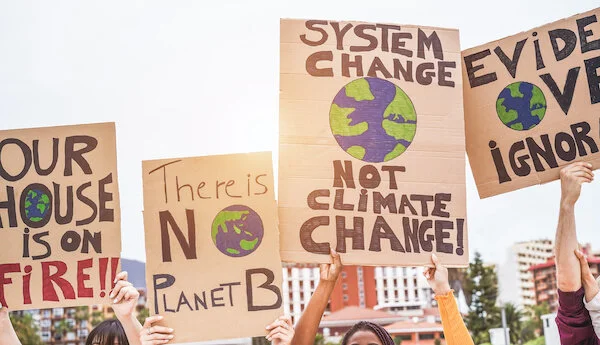On the 30th of January, the Massachusetts State Senate approved a trio of bills aimed at addressing climate change. Only two Senators voted against the measures.
Included in the 55 pages long document is a call for a mandate for achieving net-zero emissions by 2050, a carbon pollution tax, and plans for bolstering solar power in low-income communities.
The bills are primarily the work of Senate President Karen Spilka (D-Ashland), Senate Chair of the Joint Committee on Telecommunications, Utilities, and Energy Michael Barrett (D-Lexington), and Senate Ways & Means Committee Chair Michael Rodrigues (D-Westport).
Prior to the unveiling of the bills, Senate President Spilka and Committee Chair Michael Barrett released a video via social media announcing the unveiling of the measures. In the video, Spilka says that the youth of the Commonwealth have “urged us in no uncertain terms to take bold action to combat climate change right here in Massachusetts."
The package of bills includes:
S.2477 - An Act Setting Next Generation Climate Policy
S.2476 - An Act to Accelerate the Transition of Cars, Trucks and Buses to Carbon-Free Power
S.2478 An Act Relative to Energy Savings Efficiency
Critics of the measures claim that fees for carbon emissions could impose an ambiguous cost on taxpayers.
State director of the National Federation of Independent Business, Chris Carlozzi, told the Herald, that during the debate, “Senators repeatedly rejected requests to determine the cost of this new carbon policy” and that the Senate “seems more fixated on passing a ‘radical’ carbon policy rather than taking into consideration the fiscal impact on residents’ and small businesses’ operating costs.”
Mass Fiscal Alliance Spokesman Paul Craney also spoke out against the Senate vote saying that it was “a disgrace to the taxpayers and those who care about transparency.” He further called the measures “a mandate to subsidize the affluent’s mode of transportation.”
Overview of Senate Climate Bills
An Act Setting Next Generation Climate Policy (S.2477)
S.2477 calls for net-zero emissions in Mass. by the year 2050 with nearer-term limits beginning in 2025 and every five years thereafter. Sub-limits are specified for transportation, buildings, solid waste, natural gas distribution, and other sectors of the economy.
If passed, the measure would make Massachusetts the third state in the US to commit to zero emissions along with New York and California.
The bill also establishes the Massachusetts Climate Policy Commission to oversee the state’s handling of the climate policy.
As anticipated, the measure also calls for a tax on carbon pollution. Future gubernatorial administrations will have leeway in choosing a carbon fee structure.
Other provisions in the bill include reform for public utility oversight, Board of Building Regulations and Standards (BBRS) reforms, the creation of a database to track energy use in large buildings in the state, and more.
An Act Relative to Energy Savings Efficiency (S.2478)
The Act Relative to Energy Savings Efficiency creates appliance efficiency standards for common household and commercial appliances. The measure is intended to not only to conserve energy use but also to save consumers and businesses money. It would also counteract Trump administration efforts to roll back federal energy efficiency standards for products such as light bulbs.
An Act to Accelerate the Transition of Cars, Trucks and Buses to Carbon-Free Power (S.2476)
An Act to Accelerate the Transition of Cars, Trucks and Buses to Carbon-Free Power directs the MBTA to limit its fleet to zero-emissions vehicles by 2030 and requires the agency to achieve zero emissions by 2040.
The measure also calls for a study into opportunities to convert fleets operated by municipalities, school districts, and regional transit authorities.
Governor Baker Doubles Down On Zero Emissions
On Tuesday prior to the unveiling of the trio of bills, during his annual State of the Commonwealth address, Gov. Baker gave the bills a boost by pledging net zero emissions by 2050 and recommending lawmakers move forward with his signature Transportation and Climate Initiative (TCI).
The Governor’s announcement also gave a lift to House Bill 832, aka the 2050 Roadmap bill which also calls for net-zero emissions by 2050 and an “intentional, equitable, and people-centered plan that engages all sectors to reach this reduction.”
In an interview with the Climate XChange Roundup, Senate Energy Chair and bill sponsor Michael Barrett talked about “a market change in the last 12 months with respect to public attitudes toward climate change” and said that his constituents “we’re moving from awareness to alarm, and from alarm to anxiety.”
When asked how he expected the House to react to the bills, Barrett stated that he was “cautiously optimistic” that the reaction would be favorable.
The bills now move to the House for consideration.
Connect with us. Stay current with our latest thinking around government and public affairs in Massachusetts. Reach out to us today to learn more about the public policy and government affairs services we offer.
Learn More:
An Act to Accelerate the Transition of Cars, Trucks and Buses to Carbon-Free Power (S.2476)
Climate XChange - Mass. Senate’s Climate Bills: Overview, Summary, & Context - 1/23/20
Worcester Telegram - Tran, Fattman only senators to vote against Mass. climate bills - 1/31/20
Boston Herald - Critics wary of ramifications of state senate climate policy - 2/18/20
CommonWealth - A roadmap for combatting climate change - 10/26/19


